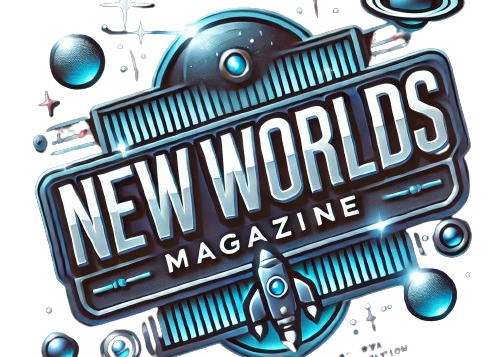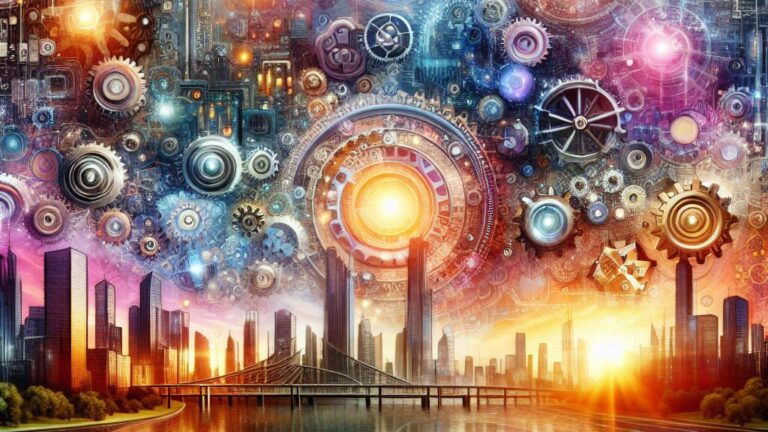Table Of Contents
The Ultimate Roundup of Historical Events You Need to Know
Key Takeaways
- Comprehensive overview of significant societies across eras
- Important transformative actions that shaped nations
- Global conflicts and their lasting effects on societies
- Notable shifts in social structures and norms
- Progress in technology throughout different periods
- Pivotal individuals who influenced historical developments
The Ultimate Roundup Of Historical Events | Major Civilizations Through Time
Throughout history, civilizations have risen and fallen, shaping the narrative of humanity. The Ultimate Roundup of Historical Events captures pivotal moments that define our collective past, from the shot heard round the world during the American Revolution to the cultural dynamism of the classical period. Historians often reference significant events such as the establishment of the Roman calendar, which laid the groundwork for how we perceive time today. The Victorian times of the 19th century showcased advancements in art and science, further solidifying the legacy of influential civilizations. Tradition and innovation intertwined, creating a rich tapestry that continues to echo through modern society. Understanding these monumental shifts allows us to appreciate the depth and breadth of history itself.
| Event | Year | Civilization | Significance |
|---|---|---|---|
| Signing of the Magna Carta | 1215 | England | Established the principle of limited government and individual rights. |
| Fall of the Western Roman Empire | 476 | Roman Empire | Marked the end of ancient Rome and the beginning of the Middle Ages. |
| French Revolution | 1789 | France | Inspired widespread revolutionary movements and the idea of democracy. |
| Industrial Revolution | 1760-1840 | Global | Transformed economies and societies with advancements in technology. |
| Women’s Suffrage Movement | 19th-20th centuries | Global | Progress towards gender equality and women’s rights to vote. |
The Ultimate Roundup of Historical Events | Ancient Egypt and Its Influences
Ancient Egypt holds a pivotal place in The Ultimate Roundup of Historical Events. Its influence extended far beyond its geographical confines, impacting various cultures across the globe. A historian would point to the lasting legacy of Egyptian imperial strategies, architectural marvels, and religious practices. The art and engineering skills displayed in monumental structures such as the pyramids have inspired countless generations. The civilization’s innovations, including the introduction of leap years to their calendar, exemplify the sophistication of their society. These advancements laid foundational elements that would be revisited during the Renaissance.
The Battle of Kadesh, fought between the Egyptians and the Hittites around 1274 BCE, highlights the military might of ancient Egypt and its intricate political dynamics. The Society of American Historians often examines such events to understand the complexities of power and influence in historical contexts. The connection between ancient Egypt and other cultures can also be felt among groups like the Latter-day Saints, who reference historical narratives in their teachings. As a vital piece of The Ultimate Roundup of Historical Events, the stories and relics from this era continue to capture the imagination of people worldwide, even inspiring modern scholars affiliated with institutions like the New-York Historical Society.
The Rise and Fall of the Roman Empire
The Roman Empire stands as a defining chapter in the Ultimate Roundup of Historical Events, illustrating both grandeur and eventual decline. It encompassed vast territories, spanning from the ancient Near East to the New World, influencing cultures and governance. The legacy of the ancient Romans can still be traced in various facets of modern society, including legal systems and urban planning. Notable events, such as the Wars of the Roses in England, echo the political intricacies that once characterized the Roman political landscape, reflecting on the importance of stability and governance.
The decline of this powerful empire is often tied to a myriad of factors, including economic instability and military challenges. The Gregorian calendar, introduced during its later years, marked the need for organization and reform in response to societal changes. Historical associations, like the American Historical Association and the Organization of American Historians, emphasize the crucial lessons learned from this era. Events such as May Day and even battles like the Battle of the Little Bighorn showcase how historical narratives evolve, connecting past struggles to contemporary movements, ultimately enriching the history of the United States.
Key Revolutionary Movements
Revolutions have shaped the course of history, marking pivotal shifts that resonate through time. The battles of Lexington and Concord ignited the American Revolution, paving the way for a new era in the early republic. Across the Atlantic, the French Revolution redefined concepts of governance and citizenship, influencing countless other uprisings. The civil war era in the United States further exemplified these struggles, as did conflicts like the Wars of the Roses, which determined the fate of the English crown. Meanwhile, significant events like D-Day during World War II and the Battle of the Little Bighorn stand as testaments to the ongoing impact of these revolutionary moments. The Ultimate Roundup of Historical Events encapsulates how these revolutions have driven societies toward change, both in the New World and beyond, with echoes felt even in the Olympic Games and the Eastern Roman legacy.
The American Revolution
The desire for independence marked a pivotal moment in the timeline of the western Roman influence on governance and democracy. The colonists’ yearning for rights and representation fueled a series of confrontations that led to history-making events such as the Boston Tea Party and the signing of the Declaration of Independence. These events are frequently highlighted in The Ultimate Roundup of Historical Events due to their significance in the formation of a new nation. As the war progressed, the anniversary of key victories, like the Battle of Saratoga, became landmarks reflecting the growing resolve of the American forces.
The Treaty of Paris, which concluded the conflict, not only granted the colonies their independence but also served as a model for modern events regarding international diplomacy. This conflict stands alongside other top historic events as a turning point in shaping democratic ideals worldwide. The influence of the revolution can still be seen today, echoing the lasting impacts of earlier movements during the archaic period and the establishment of principles that would eventually back the formation of modern governments. Such connections make the American Revolution a critical entry in The Ultimate Roundup of Historical Events.
- The American Revolution inspired other countries to pursue their own independence and democratic reforms.
- It established the foundation for the United States Constitution and the Bill of Rights.
- The revolution introduced key concepts of liberty and equality that shaped future political ideologies.
- The conflict also paved the way for the emergence of political parties in the United States.
- It led to significant social changes, including the questioning of traditional hierarchies and the role of women.
- The war fostered a sense of national identity among the American people.
- The revolutionary ideals have continued to influence civil rights movements across the globe.
The French Revolution
A defining period in history, this era showcased a profound transformation in French society and governance. It marked the end of absolute monarchy and the rise of republicanism, becoming one of the top historical moments in the narrative of human freedom. Major events such as the storming of the Bastille and the Declaration of the Rights of Man and of the Citizen emphasized ideals of liberty, equality, and fraternity. These notable events generated significant discussions that influenced other nations, making it a key fixture in The Ultimate Roundup of Historical Events.
This historic event not only reshaped France but also resonated globally, inspiring revolutions and movements worldwide. The principles born from this tumultuous time created a ripple effect through history time that garners attention even today. Its legacy can be seen in various democratic frameworks and civil rights discussions, as it laid the groundwork for modern governance. As a pivotal chapter in history, it remains a noteworthy part of The Ultimate Roundup of Historical Events, showcasing the enduring quest for human rights and justice.
World Wars and Their Impact
War reshaped the fabric of global society, with World War I and World War II standing as pivotal events in the timeline of world history. These conflicts can be seen as important events that altered national boundaries, introduced profound political changes, and led to new ideologies. The aftermath of World War I set the stage for a series of related events that ultimately culminated in World War II, fundamentally transforming how nations interacted. As part of the 100 most important events in human history, these wars prompted shifts in power dynamics and laid the groundwork for the modern era. Scholars often refer to the traditional date markers of these wars to emphasize their significance in the broader events list of history. The Ultimate Roundup of Historical Events captures how these wars not only affected the immediate post-war period but also influenced centuries of political and social developments leading into new history.
Causes of World War I
The assassination of Archduke Franz Ferdinand in June 1914 marked a legendary date in global history, triggering a series of alliances that ultimately led to war. This specific event is often cited as the immediate cause of World War I, but its roots stretch deeper into the political and social tensions of the era. Historical societies often explore how nationalism, militarism, and colonial rivalries created a powder keg in Europe. Viewing this event through the lens of The Ultimate Roundup of Historical Events, it becomes clear how this moment became a significant event in a series of escalating conflicts that would involve multiple nations.
A broader context reveals that the origins of World War I can be traced back through decades of complex relationships between powerful empires. The competition for territorial expansion and dominance in global trade created fertile ground for conflict. The intricate web of alliances formed during the last half of the 19th century heightened tensions, making the outbreak of war almost inevitable. Historical quarterly analyses often highlight the significance of militaristic and diplomatic miscalculations that created an environment ripe for one of history’s most important events. Understanding these causes provides crucial insights into how this monumental conflict reshaped the course of global history.
Aftermath of World War II
The conclusion of World War II marked a significant turning point in the timeline of global history. The ultimate roundup of historical events reveals that this final clash not only reshaped nations but also redefined international relations. Significant occurrences such as the establishment of the United Nations and the onset of the Cold War began to surface. This historic moment in 1945, a famous date within the modern calendar, heralded a new era that aimed at fostering collaboration and preventing future conflicts.
As nations grappled with the aftermath, the 20th century witnessed a complex interplay of recovery and power struggles. Countries emerged from the wreckage, striving for triumph in rebuilding their economies and societies. The ultimate roundup of historical events details the shifts in political landscapes, with decolonization movements gaining momentum. These developments laid the groundwork for contemporary geopolitics and reshaped the course of history in ways that continue to resonate today.
Significant Social Changes
The Ultimate Roundup of Historical Events highlights the profound implications of social movements that shaped human history. The late-18th century signaled the beginning of a long-standing tradition of striving for equality and rights, leading to significant victories in American history. As the 19th century progressed, these movements gained momentum, marking what many viewed as a golden era of activism that witnessed many battles for civil rights and women’s suffrage. The decades that followed cultivated a sense of urgency for change that would resonate throughout the next decades, establishing a historic record of progress that continues to inspire future generations. This vibrant tapestry of social change remains a crucial part of The Ultimate Roundup of Historical Events.
The Civil Rights Movement
The struggle for racial equality stands as a seminal event in the entire timeline of American history. This movement united people across different backgrounds, forming a unifying event that propelled numerous activists to the forefront of social change. Major victories, such as the Civil Rights Act of 1964, marked significant milestones, earning the movement a place in The Ultimate Roundup of Historical Events. Festivals honoring this legacy continue to celebrate the achievements of those who fought bravely for justice, ensuring that future generations remember these pivotal moments.
This period was filled with intense activism and notable leaders who shaped the course of history. Historical events like the March on Washington and the Freedom Summer are often celebrated as past winners in the ongoing fight against discrimination. Each step taken during this time exemplified a determination to achieve equality. Certain forgotten events, though overshadowed, contributed to the overall momentum seen in the finals of this struggle. The past years have shown that the movement’s impact remains alive and relevant in contemporary society, further solidifying its status in The Ultimate Roundup of Historical Events.
Women’s Suffrage and Its Legacy
The fight for women’s suffrage was a defining struggle in the timeline of social change, marking a significant moment in the 20th century. American historians often highlight the centennial exposition of 1876 as a pivotal event where the call for women’s rights gained momentum. Over many years, activists fought tirelessly, leading to a decisive victory with the passage of the 19th Amendment in April 1920. This single event transformed the landscape of American democracy and inspired global movements advocating for women’s rights.
The legacy of women’s suffrage extends far beyond the right to vote, influencing various aspects of society. Such moments in history remind us of the powerful impact of civic engagement and grassroots activism. The Ultimate Roundup of Historical Events showcases how this movement paved the way for subsequent generations, including advances in women’s participation in areas like politics and the workforce. Today, the strides made echo in contemporary struggles, illustrating the ongoing journey toward equality and representation.
- Women’s suffrage led to increased participation of women in politics.
- The movement served as an inspiration for other civil rights movements.
- Women’s organizations and advocacy groups gained significant momentum following the 19th Amendment.
- Challenges faced during the suffrage movement helped educate voters about broader issues of equality.
- The legacy continues to influence contemporary discussions around reproductive rights and workplace equality.
- Women’s suffrage played a key role in shaping legislation that supports gender equality.
- The movement highlighted the importance of intersectionality in social justice efforts.
Technological Advancements in History
The impact of technological advancements can be traced back to pivotal moments in history that shaped the fate of civilizations. From ancient innovations that enabled civilizations to thrive during battles to the revolutionary changes brought about by the Industrial Revolution, these advancements marked the first time humanity harnessed machinery to alter everyday life. The European conquest of new territories relied heavily on technological superiority, leading to the rise of prize-winning empires. Today, as we look back, The Ultimate Roundup of Historical Events offers insight into how these shifts in technology have influenced global dynamics. The long march toward the digital age illustrates the continuous evolution of human ingenuity, underscoring the importance of understanding our past to navigate the future.
The Industrial Revolution
The transformational period from the late 18th to the 19th century marked an impactful event that reshaped societies and economies worldwide. This era saw the rise of mechanization, altering the landscape of production and labor. Key inventions and innovations became the winners of this time, enabling mass production and improving efficiency. The march towards industrialization set the stage for significant social changes, influencing the course of future world wars and leaving a legacy that resonates even today.
The 21st century take on the Industrial Revolution highlights its dual nature as both a conquest of human ingenuity and a source of societal challenges. The enactment of new technologies created a dynamic shift in daily life, yet it sparked discussions on the consequences of industrialization. As historians reflect on this moment in The Ultimate Roundup of Historical Events, it serves as a reminder of how advancements can lead to profound shifts in the fabric of society, shaping future generations and their approaches to change.
The Digital Age Revolution
The digital age marks a significant shift in the landscape of communication and information. With its origins dating back to the mid-20th century, this era saw the invention of computers that would redefine how people interact. The Ultimate Roundup of Historical Events highlights this transformation, likening the rise of technology to a battlefield where ideas clash and compete for dominance. As clocks ticked towards the 21st century, the advent of the internet changed the game entirely, leading to major societal shifts and redefining human connection.
The impact of the digital age can be felt in everyday life, transforming work, education, and entertainment. Historical associations are made as each day presents new advancements and capabilities. Just as conflicts shaped the narratives of the past, the technological revolution has become a major defeat of traditional barriers to knowledge and freedom. The Ultimate Roundup of Historical Events underscores how the digital revolution is not just a phase; it is a new chapter in human history that will shape future generations for days to come.
| Milestone | Year | Description |
|---|---|---|
| Invention of the Computer | 1940s | The first electronic computers were developed, laying the groundwork for the digital age. |
| Creation of the Internet | 1960s | The ARPANET was established, connecting multiple computers and enabling data sharing. |
| Launch of the World Wide Web | 1991 | Tim Berners-Lee introduced the World Wide Web, revolutionizing how information is accessed and shared. |
| Rise of Social Media | 2000s | Platforms such as Facebook and Twitter transformed personal communication and networking. |
| Smartphone Introduction | 2007 | The launch of the iPhone marked a significant advance in mobile computing, linking communication and the internet. |
Influential Historical Figures
Throughout history, figures have emerged who significantly influenced the course of human events. The Ultimate Roundup of Historical Events captures the essence of these individuals, showcasing how their actions created important moments that shaped civilizations. For example, Mahatma Gandhi’s inception of nonviolent resistance during the tumultuous period of colonial rule in India served as a touchstone event, inspiring movements across the globe. Similarly, Albert Einstein’s groundbreaking theories during the tumult of the early 20th century, including the era marked by recent wars, shifted the scientific landscape. From the Tudor reign to the debates that captured New England bound aspirations, these influential figures contributed to the longest period of cultural and intellectual advancement, emphasizing the chance encounters and decisions that ultimately determined the trajectory of nations and peoples. As we explore these remarkable individuals, it becomes clear how their legacies continue to resonate through time, making their contributions integral to the tapestry of historical development.
Mahatma Gandhi and Nonviolent Resistance
Gandhi’s commitment to nonviolence reshaped the landscape of resistance movements across the globe. His philosophy emerged in a time when the world struggled with imperialism and oppression, marking a significant chapter in English history. The Ultimate Roundup of Historical Events highlights how his mission inspired nations to consider peaceful protest as a viable alternative to armed conflict. His approach played a critical role in securing an American victory in civil rights, grossing support from diverse communities that echoed the values of unity and peace.
The last decade of Gandhi’s life saw an intensification of his efforts to liberate India from British rule, setting the stage for independence. His methods, deeply rooted in principles that date back to early civilizations, represented the culmination of ideas spanning nearly a millennium. From the ancient societies of 3000-2700 BCE to modern revolutionary movements, his legacy endures as a powerful reminder of how nonviolent resistance can enact profound social change. Gandhi’s influence remains a pivotal part of The Ultimate Roundup of Historical Events that highlights transformative strategies for justice and equality.
Albert Einstein and the Theory of Relativity
Einstein’s theory reshaped our understanding of space and time, serving as a decisive turning point in physics. The Ultimate Roundup of Historical Events highlights how these discoveries influenced the realities of wars and technological advancements over long years. His insights into the nature of the universe laid the groundwork for modern astrophysics. This revolutionary work demonstrated the significance of scientific inquiry in shaping historical narratives, much like the reigns of the Tudors altered the course of English history.
The relevance of Einstein’s theory persists today, impacting various fields, from cosmology to quantum physics. The Ultimate Roundup of Historical Events emphasizes its historic importance in highlighting the relationship between energy and mass, encapsulated in the famous equation E=mc². This equation not only transformed theoretical perspectives but also provided the foundation for innovations that have led to a successful revolution in how we perceive the world around us. Einstein’s contributions remain a pivotal point in the story of human progress.
Conclusion
The Ultimate Roundup of Historical Events presents a tapestry of human civilization, highlighting the various stages that have shaped our world. Each significant event sets a precedent for future developments, creating a continuum of societal evolution. From the monumental achievements of Ancient Egypt to the transformative impact of the Industrial Revolution, these pivotal moments encapsulate the essence of human progress. The Ultimate Roundup of Historical Events serves as a reminder of the lessons learned from both triumphs and failures, urging us to reflect on how history continues to influence contemporary society.
FAQS
What are some examples of significant historical events that have shaped the times and are still relevant today?
Throughout history, there have been many singular events that have had a major victory or notable impact on the world. For instance, the ruling in the 12th century by influential knights at the time led to major developments in society. Significant celebrations and historic development, such as those observed at Versailles, also hold historical significance. Looking back at events like those from 221-206 BCE, we can see how half centuries of changes have influenced the course of recent history. These lifetime events and seminal events in chronological order demonstrate how our understanding of the past connects with important events Americans still discuss today.
How have historic events influenced the way we perceive the times in which we live and how are they relevant today?
Throughout time history, various historic events have played a crucial role in shaping the earth and its rulers. These events garner attention because they impact a few years or even a long time in the future, remaining relevant today and showcasing the formation of societies as we know them. History emerita highlights these influences as significant contributions to our understanding of the past and its connection to the present.
How did historic events garner attention and influence the formation of the times we live in today?
Historic events garner significant attention as they play a crucial role in shaping the formation of the times. They influence societal norms, political landscapes, and cultural movements, highlighting how our understanding of history impacts the times we live in.
How do historic events garner public attention and backs the formation of contemporary society?
Historic events garner attention through various forms of media, which helps in understanding their significance and backs the formation of contemporary society by influencing cultural, political, and social developments.
How can we analyze the impact of historic events that garners attention and backs the formation of our current society?
Analyzing the impact of historic events that garners attention involves examining how these events influence public perception and policy, shaping the cultural, political, and social frameworks that backs formation of contemporary society.
How do popular media representations of historic events garners interest and discussion about their relevance in modern society?
Popular media representations of historic events garners significant interest and discussion as they highlight the impact these events have had on shaping contemporary society. By providing context and engaging storytelling, these representations not only educate the public but also encourage reflection on how past events resonate with current issues and cultural narratives.







